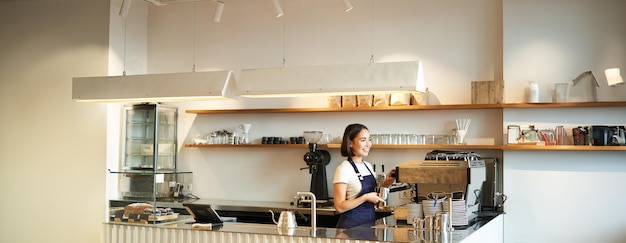3 Smart Trends for Launching a Successful Restaurant Business

Trends come and go, but sometimes they become a new way of life. The global health pandemic, a shift in collective consciousness, and unstable economic conditions have given rise to business trends that are quickly becoming the norm. Restaurant startups have seen diverse food delivery options, innovative business expansion, extensive online ordering, and assemble-your-meal popup stores, among others. But which trends have been the most impactful and promising?
Here are three key trends:
Firstly, millennials and Gen Z have pushed for sustainability over the past decade. The concept of a sustainable restaurant business has evolved beyond just reducing waste and minimizing environmental impact. It’s not just about designing a green logo or posting on social media.
A modern sustainable restaurant startup involves much more. As consumers become more conscious and educated about their choices, only restaurants and food startups that earnestly adopt a sustainable approach will thrive. This means adhering to health protocols, sincerely combating kitchen waste, and addressing problematic workplace practices like discrimination.
If you’re planning to start a food business, make sustainability your unique selling point.
Another major trend is the rise of ghost kitchens. Despite the eerie name, the concept is brilliant. A ghost kitchen is a food establishment without any seating or dine-in options, operating solely for delivery or pickup. These kitchens have significantly reduced overhead costs and are favored by restaurant startup founders for their limited risk, lower costs, and high potential for growth.
For example, Bamboo Asia, a restaurant in San Francisco, utilized its ghost kitchen to plan its expansion. Although it had to close due to COVID-19, it was operating from four locations and now offers fresh meal kits to customers.
Finally, with AI stepping in, restaurant technology is evolving rapidly. We now see robots, cash-less POS systems, and more integrating into the food industry. Restaurant startups actively seek out technologies to stay ahead of the competition. The digitization is happening in both front-of-the-house and back-of-the-house operations. Traditionally focused on frontend solutions like online orders and apps, the attention is now shifting to backend solutions.
Comprehensive restaurant management software, such as Toast, Restaurant365, and Upserve, handle everything from order management to inventory tracking. These digital solutions allow entrepreneurs and chefs to focus on reimagining food while technology manages the business side.
The restaurant industry has not been immune to global changes. Consumers are getting more conscious, technology is advancing rapidly, and people are adapting to a new normal. These times are exciting for championing change and embracing restaurant startup trends that can turn into better lifestyle practices.